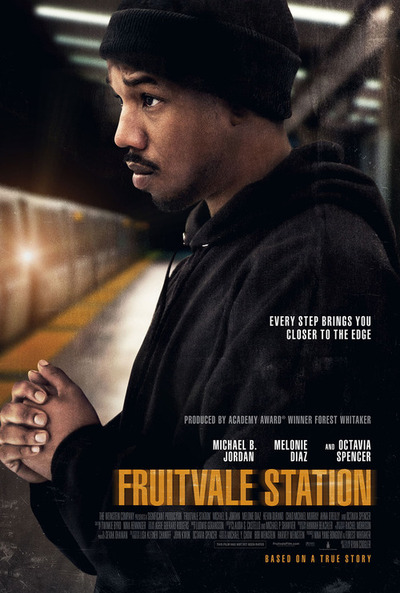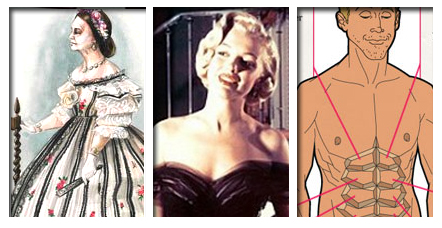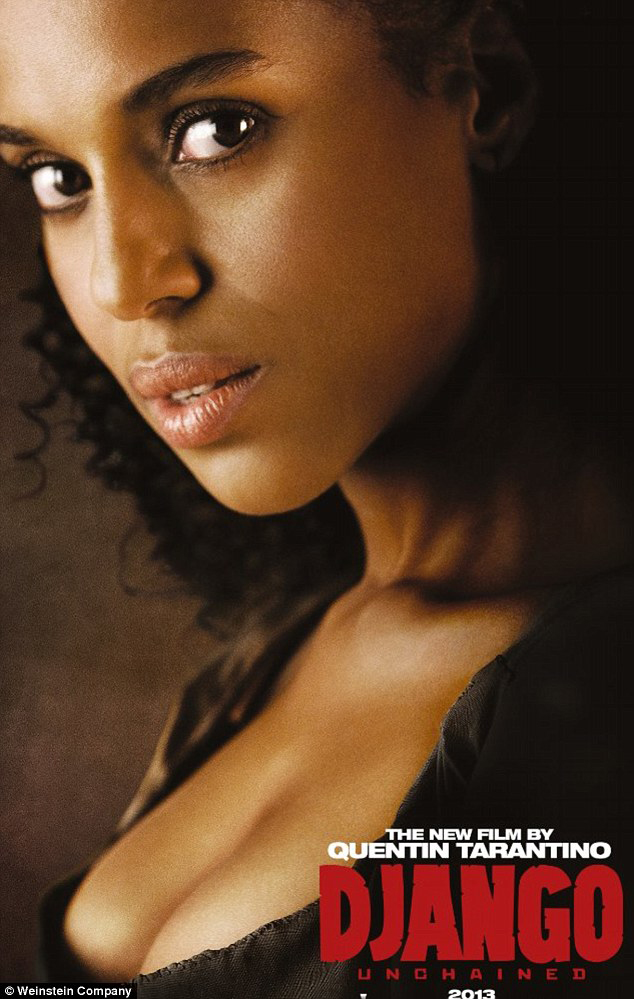The first storyteller is Aibilene (Viola Davis), a black maid raising her 17th white baby in the Jim Crow south. She can't answer the question of what it feels like to raise another woman's baby when you've left yours behind at home. It's an overwhelming opening inquiry to be sure. Though it's immediately clear Aibilene is being interviewed, we don't know why and for what purpose as The Help begins. This type of prologue is common in movies as you get a peek at what's to come before stepping back to the beginning, but the introduction is important: Abilene is the first person we meet and the narrative voice of the movie.
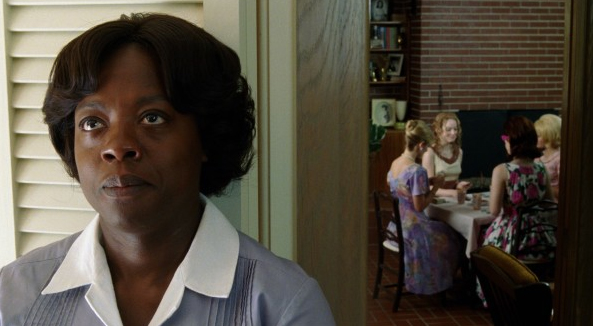 Viola Davis even listens with dramatic depth!
Viola Davis even listens with dramatic depth!
Though mainstream Hollywood has proven time and again that they're constitutionally incapable of telling black stories without a white frame -- in this case Emma Stone's frizzy haired provocateur "Skeeter" who is secretly writing a book about the experience of maids in Jackson, Mississippi -- The Help, however subtlely (and perhaps accidentally), suggests with its Davis-centric opening and closing passages that Abilene is capable of creating frames of her own, thank you very much. In fact, she'd rather write her own story than tell it to another writer.
So she does.
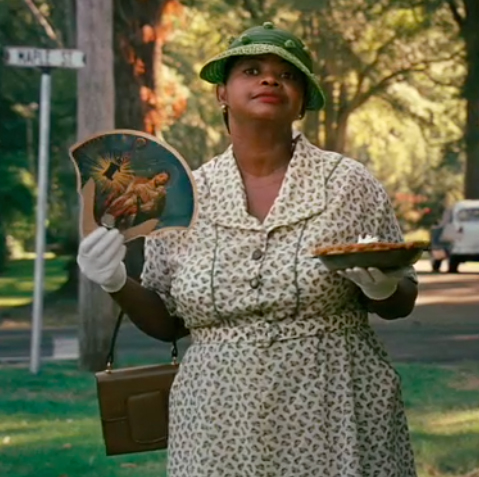 Mm-hmm. It's Octavia Spencer as Minny, a surefire Oscar nominee.If Tate Taylor's adaptation or Kathryn Stockett's bestseller were confident enough in Aibilene's voice to downplay Skeeter's this would be a much more revelatory movie, and surely a more painful one, but we're dealing with the movie we've got which is essentially both of theirs.
Mm-hmm. It's Octavia Spencer as Minny, a surefire Oscar nominee.If Tate Taylor's adaptation or Kathryn Stockett's bestseller were confident enough in Aibilene's voice to downplay Skeeter's this would be a much more revelatory movie, and surely a more painful one, but we're dealing with the movie we've got which is essentially both of theirs.
The story, or, more accurately, stories of The Help are passed like batons throughout the movie. Deep breath now: Skeeter who wants to be writer has a starter job as a cleaning advice columnist which leads her to conversations with (baton pass); Aibilene who is dealing with personal grief and a weak-willed bad-mommy employer; Elizabeth (Ahna O'Reilly) who is continually pushed towards racist actions by local queen bee; Hilly (Bryce Dallas Howard) who loves lording her power over her mother, local girls, maids and the town outcast; Celia (Jessica Chastain) who is loud and 'trashy' but really loves her maid; Minny (Octavia Spencer), the best cook in town and Aibilene's BFF, who has a sharp tongue and is at war with Hilly.
Though it's easy to take potshots at The Help -- we might discuss those soon -- it's also somewhat ungenerous since The Help is well meaning and entertaining and best of all affords us the rare opportunity of seeing several watchable actresses chewing on a meaty multi-course feast together. Sometimes they mistake the scenery for another course (Bryce Dallas Howard and Jessica Chastain may both provoke heated arguments about the line betweena "type" and a caricature) but this was bound to happen. Chief among the delights in the acting arena is watching the dependable Viola Davis (Doubt, Far From Heaven) take the reins of a movie for once instead of stealing the whole thing in one scene or two.
The interplay between the characters makes up the bulk of the entertainment value, since with its sometimes candy color glossiness and very brief detached asides to actual history (usually on television sets), it's obviously not going for a deep historical rendering of the violent racist south. The movie would have done well to jettison much of Skeeter's story, both for pacing (it's far too long) and thematic strength, but Stone is such an engaging actress that it feels strange to object to having more of her around. Her storyline does eventually return, movingly, to the subject at the heart of The Help.
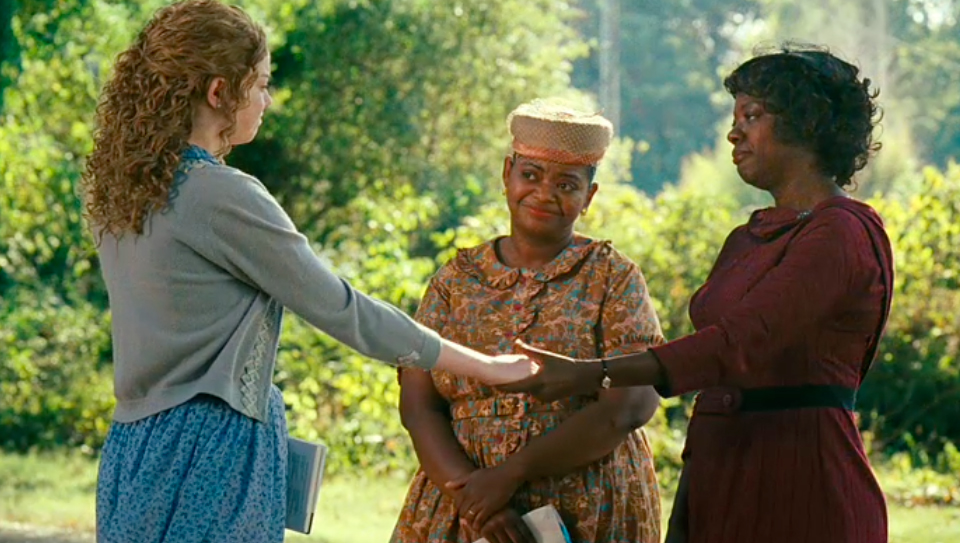
In the end where The Help wins over its audience, provided that they're okay with a surface take on a deep troubling subject, is with its trio of central performances. The intertwining still relevant topics of civil rights struggles, labor and racism are so large and overwhelming that it can be hard to breathe in their vicinity. What potency The Help does achieve it gets from its entertaining actresses sharing the thick pressure cooker air: Davis inhales, Stone fumes, Spencer erupts.
One final exasperated exhale from Aibilene is just the right cathartic move to end with. The audience breathes with her. And isn't this her story after all?
Related:
Oscar Discussion With Katey
Review Index
 Saturday, July 20, 2013 at 1:00PM
Saturday, July 20, 2013 at 1:00PM 